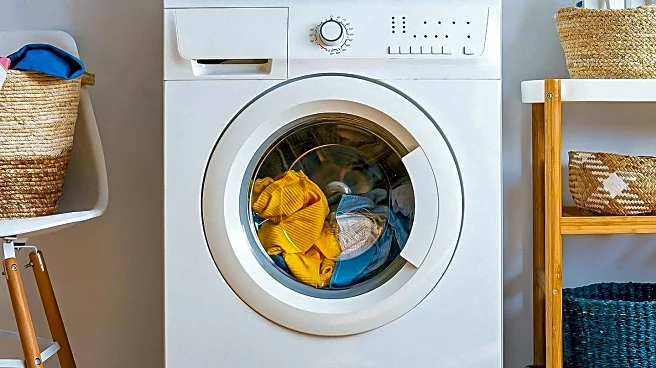What is the story about?
What's Happening?
Experts from various Southern utilities have provided insights into the best times to run washing machines to minimize energy costs and environmental impact. According to Becky Williamson from Memphis Light, Gas & Water, running laundry during peak hours, typically late afternoons and early evenings from June to September, can increase costs due to high electricity demand driven by air conditioning use. Conversely, off-peak hours, such as evenings, nights, and weekends, are recommended for running appliances to save money. The timing varies by region, with peak hours in areas with electric heating occurring early in the day during heating seasons. Experts also highlight the significant energy consumption of dryers compared to washing machines, suggesting that timing laundry loads can help maintain home cooling efficiency.
Why It's Important?
Understanding the optimal times to run washing machines can lead to significant savings on energy bills and reduce environmental impact. By avoiding peak hours, consumers can lower their electricity costs and contribute to a more balanced energy grid. This practice is particularly beneficial in regions with high air conditioning use, where reducing peak demand can alleviate strain on the power grid. Additionally, using energy-efficient appliances and cold water for washing can further decrease energy consumption. These strategies not only help consumers financially but also support broader efforts to reduce carbon footprints and promote sustainable energy use.
What's Next?
Consumers are encouraged to consult their local utility providers to determine specific peak and off-peak hours in their area. Many power companies offer programs that incentivize off-peak usage, providing opportunities for further savings. As awareness grows, more households may adopt these practices, potentially leading to a shift in energy consumption patterns. Utilities might expand their programs to include more incentives for off-peak usage, and manufacturers could focus on developing more energy-efficient appliances. This trend could also drive increased interest in renewable energy solutions, such as solar panels, to further reduce household energy costs.
Beyond the Headlines
The advice on optimal laundry times also touches on broader issues of appliance efficiency and home energy management. By considering factors like humidity and noise, consumers can improve their home environment and appliance longevity. The emphasis on using cold water and full loads aligns with efforts to reduce water heating energy, which constitutes a significant portion of household energy use. These practices reflect a growing consumer interest in sustainable living and energy conservation, potentially influencing future appliance design and energy policy.
















